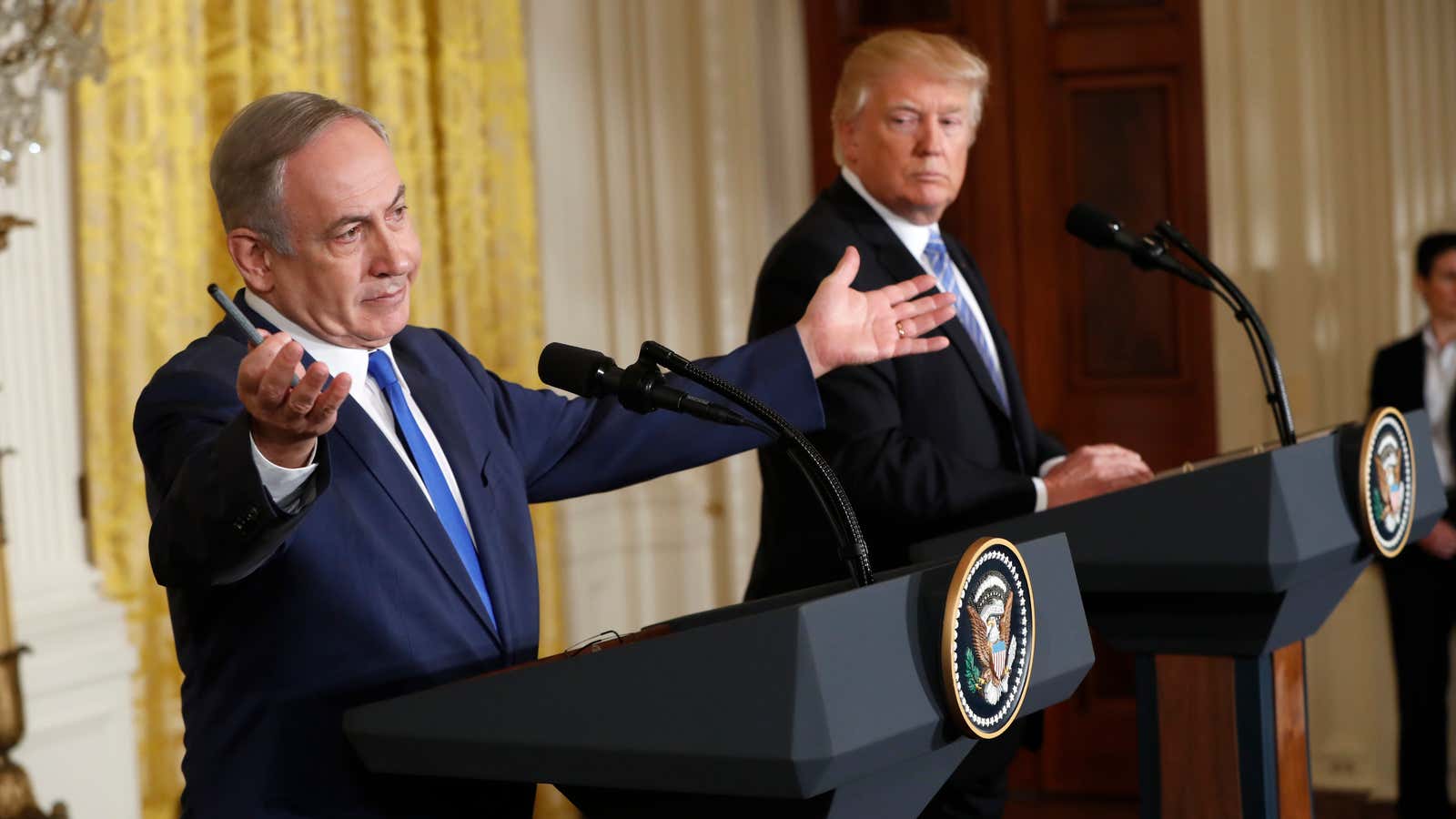What’s Donald Trump’s stance on the Israeli-Palestinian conflict? Your guess is as good as ours.
This week the US president appeared to ditch a 20-year-old tenet of American policy—that for peace to come, the Palestinians must get their own independent state alongside Israel. But, as has happened on other issues, his own officials immediately appeared to contradict him: First his UN ambassador, then even his hawkish nominee for ambassador to Tel Aviv, insisted that a two-state solution is still the goal. Trump has also vacillated about Israeli settlement-building in the West Bank and whether to move the US embassy to Jerusalem.
The sad truth is that little of this matters. Once touted as the key to Middle Eastern harmony, the Israeli-Palestinian conflict is now a sideshow to the vastly bloodier ones in Syria, Iraq, and Yemen. Moreover, both doves and hawks increasingly agree that the peace process in its current form is dead. Israel has been an intransigent peace partner, but the Palestinians, split between warring leaderships in Gaza and the West Bank, are in no condition to conclude a deal either. Whatever the Trump administration’s ultimate stance, it’s unlikely to make things either much better or much worse.
The main thing to take from this week’s statement is that, as with other foreign-policy issues—“One China,” Crimea, NAFTA—the White House is making things up on the fly, casually discarding US policies crafted over decades and then backtracking when it meets resistance. This kind of behavior may be giving Russia’s Vladimir Putin, who uses unpredictability as a deliberate policy tool, a taste of his own medicine (paywall). But it doesn’t make for good foreign relationships, a strong United States, or a safe world.
This was published as part of the weekend edition of the Quartz Daily Brief. Sign up for it here, tailored for morning delivery in Asia, Europe and Africa, or the Americas.
